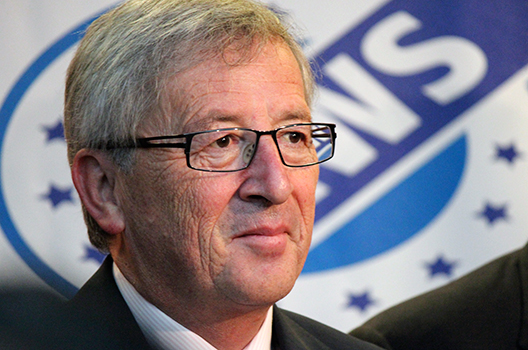
Jean-Claude Juncker is the Obvious Candidate as Europe’s Chief Executive – and He Should Step Aside
Tomorrow morning, June 27, the European Union will sign comprehensive association agreements with Ukraine, Moldova, and Georgia. These agreements will define the EU relationship with these countries, and the extensive trade, investment, and regulatory provisions will reshape the three economies towards a modern, European standard. Russian opposition to the signing of the Ukrainian accord in particular has been clear. But despite efforts by Moscow to lure or intimidate Ukraine away from Europe, the EU has been steadfast in saying that the agreement could be signed as soon as Kyiv was ready. The EU has demonstrated real leadership on this issue and backed it up with serious financial support. Although Europe has been criticized for being slow to impose sanctions – and will continue to lag in that area – sanctions are not the only measure of leadership. Over the long term, binding Ukraine, Moldova, and Georgia to the European economy will have far more impact.
If the EU has shown real leadership towards Ukraine and the other Eastern Partnership countries, it has not done the same when thinking about its own future. Immediately after signing the association agreements, EU leaders will convene to discuss who will become the next president of the European Commission, the EU’s chief executive arm. The leading candidate is Jean-Claude Juncker, the long-time prime minister of Luxembourg and head of the EU’s Eurogroup. With less than 48 hours to go, that choice looks both inevitable and disappointing.
No one can argue that Jean-Claude Juncker is inexperienced – he is a veteran of countless EU meetings, and familiar with politics and governing (even if in the small and politically homogeneous Luxembourg). He ran as the candidate of the European Peoples’ Party, representing the center right, in the recent European Parliament elections, and his party did win more seats than any other. The European Parliament thus claims that he has essentially been elected to the position of Commission president. However, not only do the member states disagree with the legitimacy of this process, but Juncker’s party suffered a significant loss in seats, falling from 274 seats to 221.
Under these circumstances, Juncker’s appointment as Commission president would be uninspired and less than optimal at best. But what the EU desperately needs right now is public leadership and unity, and Jean-Claude Juncker – through no fault of his own – provides neither.
The EU faces immense challenges: growing illegal migration from the south, Russian subversion in the East, a persistent if less acute economic crisis, and a divided and increasingly Eurosceptic public. The new Commission president should be someone who can bridge the divide between citizens and their European institutions, while putting forward a strong vision for a new Europe. That person should focus the EU on a few bold missions – perhaps a new Energy Union to start – while shedding those regulations and practices that have become too intrusive and specific. To reach out to the public and make a new case for the EU, a new face is needed, one that does not represent the elite political dealings that have been too much of the EU’s past.
Just as important as leadership is unity. The Ukraine crisis has shown that the EU can be very effective when it holds together, sends a uniform message and acts in concert (and even more when it acts in cooperation with its ally, the United States). But the Juncker candidacy has now proven immensely divisive. UK Prime Minister David Cameron is vowing to call for a vote on Juncker, and while he is unlikely to have enough allies to stop the appointment, he will exacerbate existing differences between the members on the role of the Commission and future course of the Union. There are others besides Cameron who are less than happy with the impending appointment, and thus a Juncker presidency will be handicapped immediately by divisions among key member states. Mr. Juncker himself does not seem in a mood to mend fences, pointedly saying that he will soon be appointed “if common sense prevails.” From his long EU experience, Jean-Claude Juncker undoubtedly knows that unity is the key to EU effectiveness. For that reason – and for the sake of the Union to which he has dedicated much of his professional life – he should step aside for someone who will bring the member states together.
Frances G. Burwell is vice-president and director of the Program on Transatlantic Relations at the Atlantic Council.
